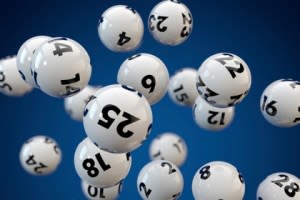
Purim, lotteries, the casting and drawing of units in a not-so-random game of chance. From “day to day, and from month to month” until the 13th of Adar was set and sealed. This week, we’ve been forced to consider another set of statistics. While barely absorbing the incalculable toll of those affected by Japan’s earthquake, our focus was abruptly fine tuned to a much smaller set of numbers.
Five members of the Fogel Family – a mother, a father, and three children living in Itamar, Israel – were murdered in a cold blooded terrorist attack last Shabbat. And yet, it’s not just the victims who rivet our attention, because there were another three children who remained physically unharmed. They will spend the rest of their lives coping with the psychological fall out from their own personal lottery, a set of circumstances which allowed them to survive when others did not. Joining them are all the survivors of all the terrorist attacks that have taken place over the years. Included in those ranks is an entirely different sort of survivor that I’ve become familiar with.
I pull out an old photo album stashed in an attic and find the one picture I’m searching for. The timeworn snapshot is of a small boy dressed up in a miniature version of army fatigues; he wears a plastic helmet on his head, a set of imitation field binoculars around his neck, a fake ammunition belt encircles his waist, and there is a toy gun in his hands. The gun has been aimed, in all seriousness, right between the eyes of the photographer. The photographer, the boy’s grandmother, bought all of this make-believe war paraphernalia to be used as a Purim costume. What I remember, mainly, is that the boy was just as pleased as punch about it, although I was not.
The small boy had many occupational dreams in his youth. He wanted to be a firefighter, a paleontologist, a magician, and all was right with the world until he graduated from high school and went to Jerusalem for two semesters of study abroad. That was the year New York City gave up its towers to Bin Laden’s Jihad and one of the boy’s classmates gave up his life to the Palestinian Intifada. Both were lotteries of a sort.
In the general spirit of giving things up, the boy gave up on the idea of going to university to study physics. He then proceeded to give up English in favor of Arabic, a U.S. passport in favor of an Israeli darchon, and all of Einstein’s theories of relativity in favor of a semi-automatic, which is what the IDF awarded him with when he enlisted. For several years, the boy spent time training for combat missions with the same division of special ops paratroopers that carried out the ‘76 Entebbe rescue operation.
In very real life, the toy soldier boy happens to be my grown-up son. He has served the IDF in active combat, returned to civilian life after participating in military operations, and joined the ranks of those who’ve survived war physically while psychologically learning to handle the emotional fall out of post traumatic stress. He’s currently finishing a degree in Arabic studies, intent on a career in counter terrorism, but he called a few days ago to say he couldn’t stomach attending classes this past week.
“Pictures of the Fogel family are splashed all over and a 12-year-old orphan is telling the world that she will be a mother to her siblings. How can I sit at the university and listen to the language of murderers? It feels like something inside of me is possibly going to snap.”
This is a 6’3” Tzanchan, a man with elite training who willingly entered killing fields in defense of his country, an adult who made a conscientious choice about his own exposure to violence. If he can be affected at this level, then what about the Fogel children who were first hand witnesses to the massacred bodies of their parents and three siblings? What about all those survivors of terror who didn’t have a choice? Where is the end of this eternal lottery with Amalek?
We say, “NEVER AGAIN” when we talk about Masada or big numbers like six million. We know we can’t continue to tolerate such sacrifices, and we know that the world loves to impose them on us with historical regularity. But what happens when it’s a much smaller number, a much smaller sacrifice that comes out of a personal set of straws? I look at that timeworn photo of my son and understand that it’s no longer a dress rehearsal, that it’s no longer about fantasy or make-believe. I think about my long ago toy soldier boy and the smallest possible sacrifice it often takes to protect a Jewish nation.
There are no answers here, there is only faith when it comes to the drawing of lots. I think about the numbers thirteen and twelve; a lottery quick pick meant for destruction. I think about the number five – victims of the Fogel family who put their lives at risk by choosing to live where they did. I think about the number three – children who managed to survive the massacre. And then, because I’m a parent, there’s another selfish number I’m prone to thinking about, the number one. One long ago toy soldier boy, who happens to be my son.
May all of our sorrow and tragedy be transformed into lightness and joy.
The Orthodox Union has established two funds in response to this week’s tragedies. Please join us by giving your generous support to:
OU VICTIMS OF TERRORISM FUND, and OU EARTHQUAKE EMERGENCY FUND
THE LAST TIME, Composed and Sung by Shmuel Schwartz in Memory of the Itamar Massacre
The words of this author reflect his/her own opinions and do not necessarily represent the official position of the Orthodox Union.



